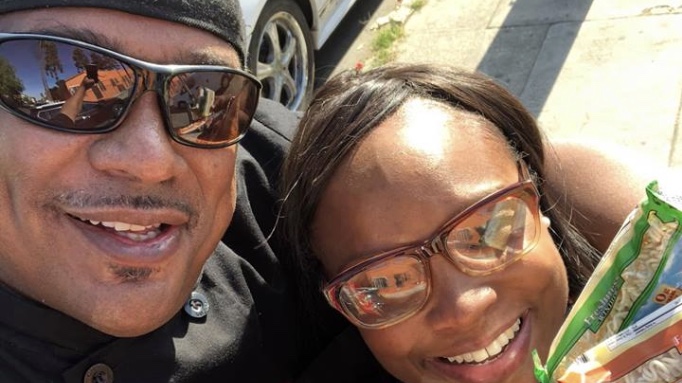Chef Ron Freeman has had his share of bad luck.
In 1996, Freeman was charged and sentenced to three years in Donovan Correctional Facility in San Diego for possessing a gram of crack cocaine. Police saw the drugs in a trashcan on his hot dog cart. They gave him an ultimatum, snitch or go to prison. He chose the latter.
Being behind bars was a difficult time in his life and the only comfort he had was ramen noodles. When he finished his time, Freeman decided to create his own brand of the inexpensive soup by launching Mama Pat's Foods in 2009 and thus, creating healthier ramen options for the incarcerated.
"In the free world, people judge your status by the vehicle you drive, or the clothes you wear, or the neighborhood you live in," he told Vice. “In prison, it’s all about your commissary. You know the guy that’s rollin’, he’s got money on the streets, he’s got it goin’ on, by his commissary. You know what a guy was about based on what he had in his locker, or under his bed or whatever — you knew he had it goin’ on with ramen."
According to Civil Eats, the sodium found in a 40 to 60 cents pack of noodles is about 66 to 72% of the daily recommended amount. The extremely high sodium intake can lead to high blood pressure, diabetes and a host of health ailments.
Although the noodles weren't the healthiest, it was the best tasting food available. Oftentimes, the incarcerated were given spoiled, rotten and/or tasteless food.
"Six or seven days out of the week, the food in prison, every meal is horrible," he told Vice. "You get bologna, it looks green; you can’t even make a sandwich with that stuff. The only time that I would go to commissary was on the night that they had baked chicken."
Ramen was and still remains a hot commodity. Incarcerated people trade ramen for supplies, and in some cases, the cheap noodles serve as a form of currency.
So, Freeman saw a grand opportunity to make noodles better. Mama Pat's Foods instant noodles have less sodium and have a salt-free alternative.
"Ramen actually is a product that when you’re in prison, it’s the only thing that kinda gives you some comfort —you’re not hungry, you can be creative in how you make it, and stuff like that," he told Vice.
Freeman's commitment to giving back and improving the lives of the incarcerated remains steadfast. He hires ex-felons to give them a second chance when society does not.

